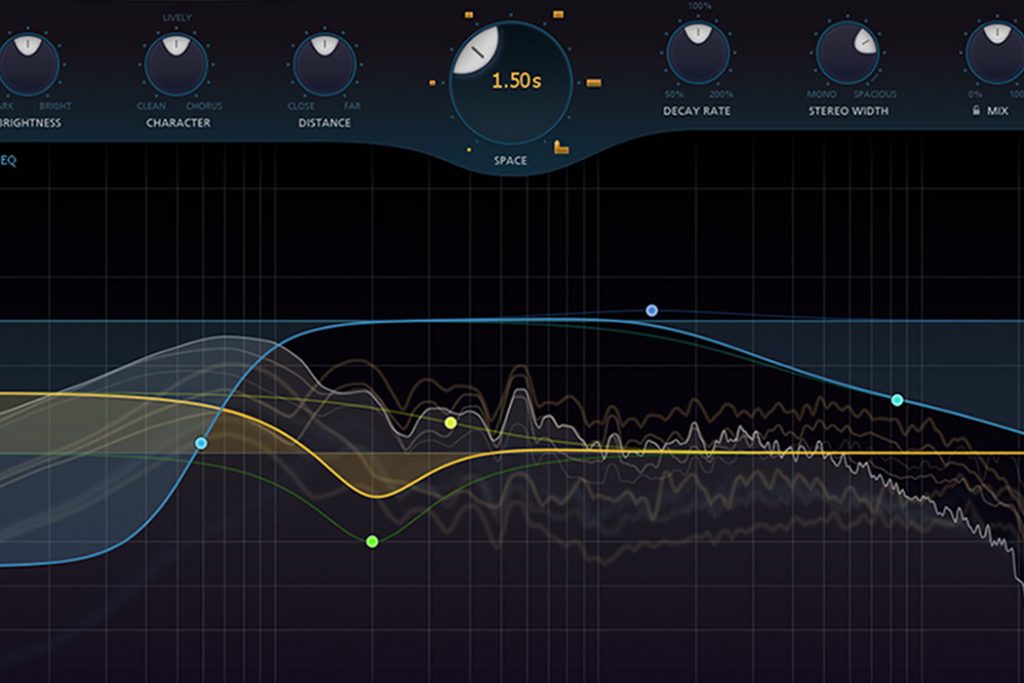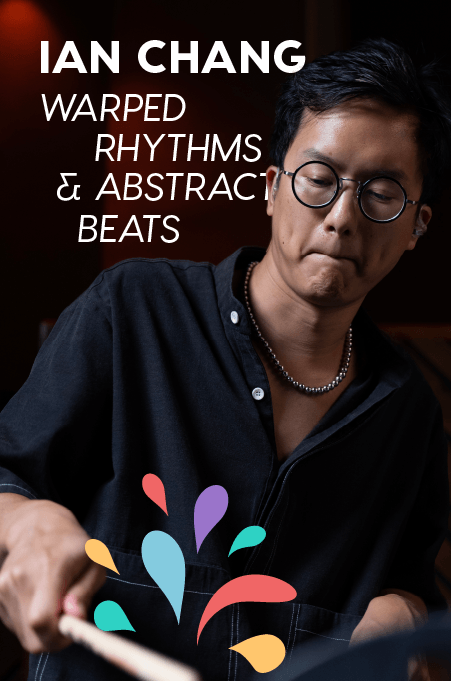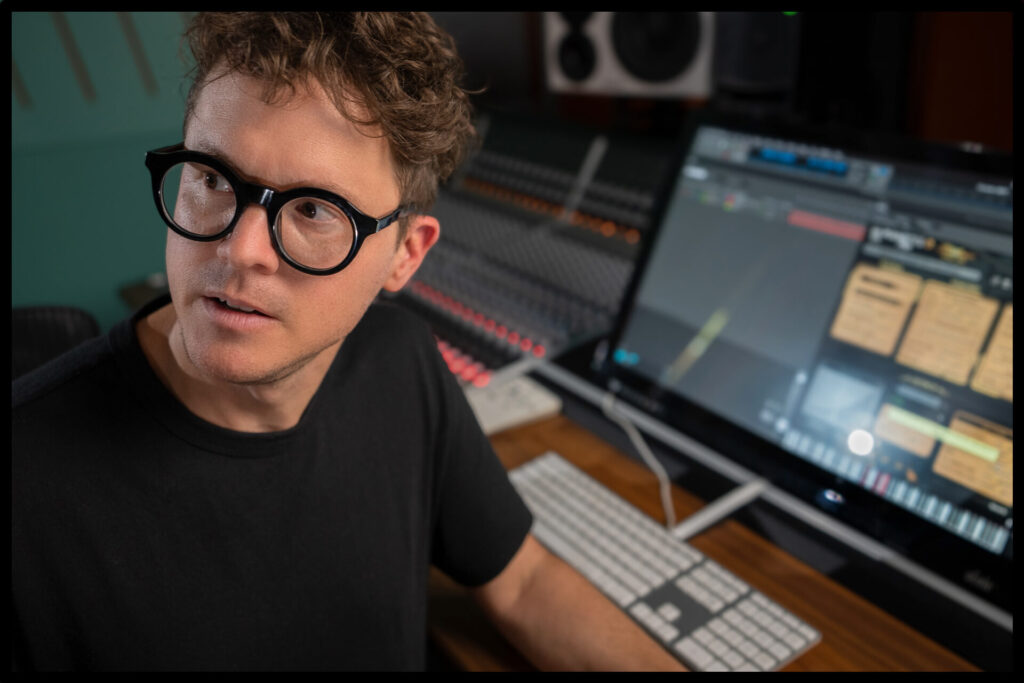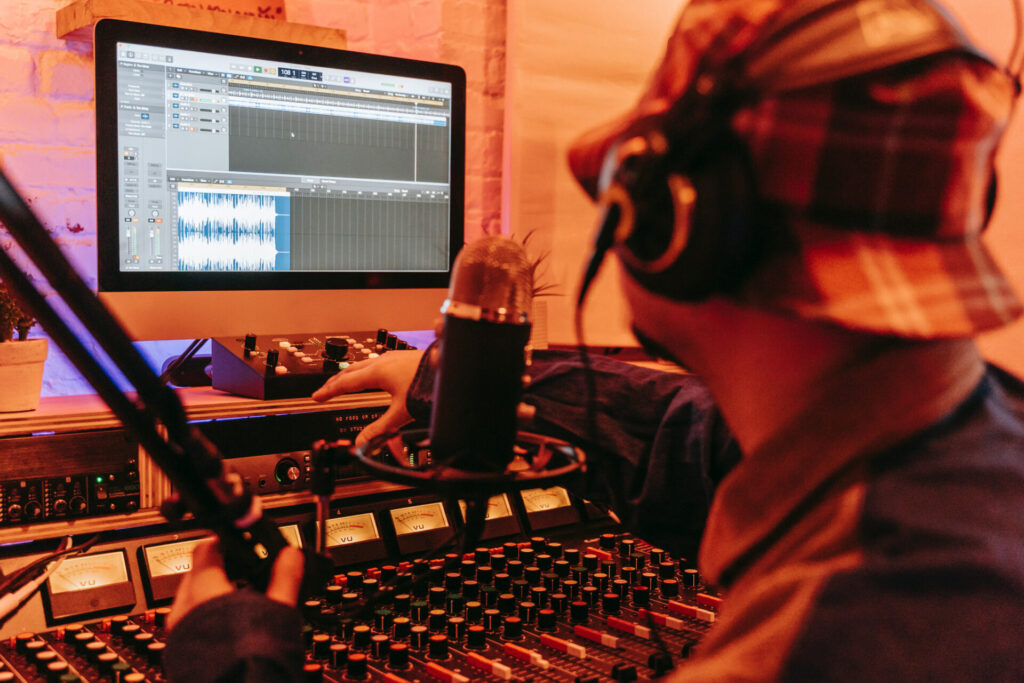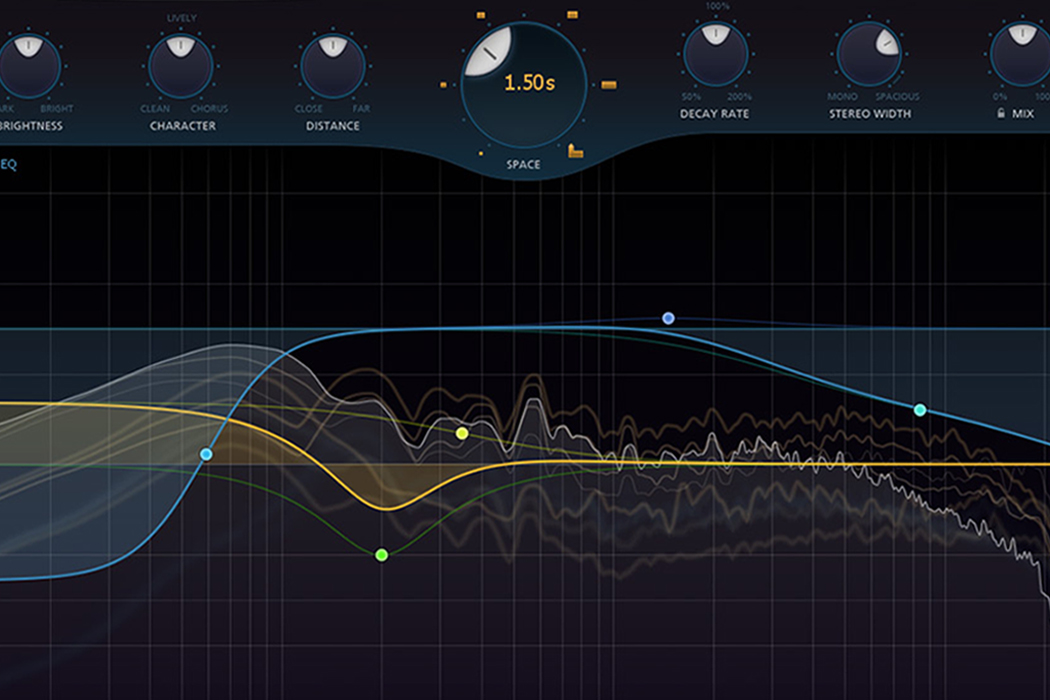
+ Learning to record and mix at home? Check out Soundfly’s acclaimed online courses on mixing, production, and beat making — Subscribe for unlimited access.
Reverb is like water. You can live without it for a few days, but eventually you’ll die.
Ok, it may not be that necessary, but without a few good reverb plugins in your DAW, you’ll be hard pressed to get a good mix, as reverb is one of the most essential tools in mixing. Reverb creates a sense of space, makes a song come alive, and gives mixes depth.
So, we’ve compiled five of the best reverb plugins around, in case you’re in need of an upgrade in that department. It would be hard to claim that this is the only possible list of five top ‘verbs, as there are so many incredible plugins out there, but these five come up repeatedly and have become staples in many a studio.
Without further ado, in no particular order, and a spacey drumroll please…
Valhalla VintageVerb – $50
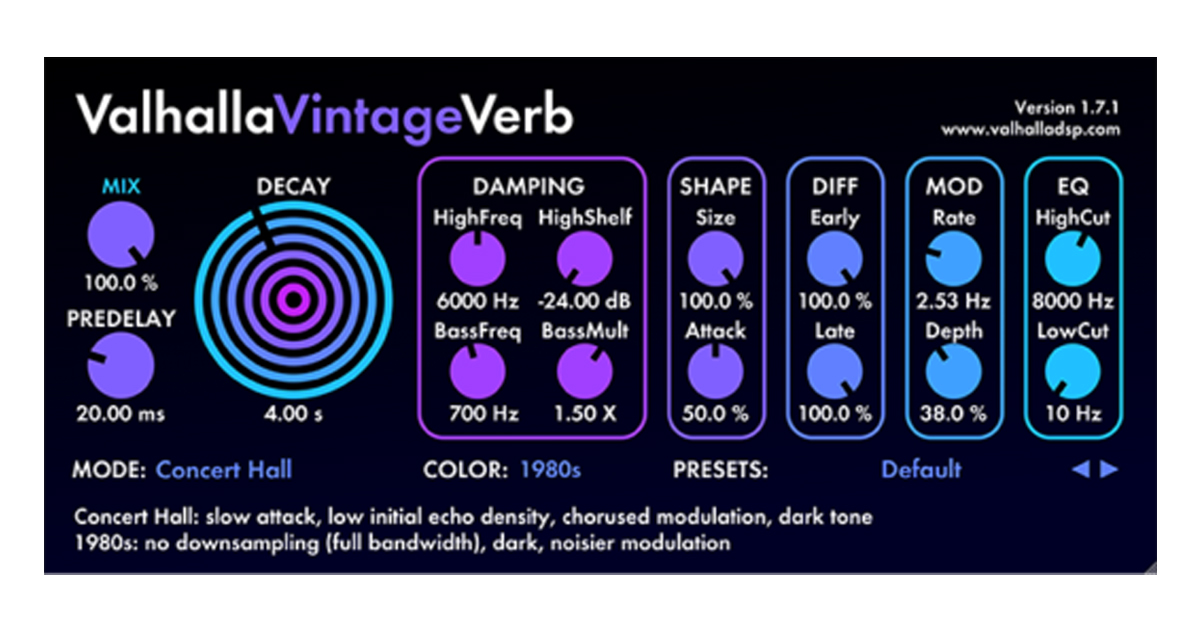
Overwhelmingly the most mentioned plugin in our informal surveys of producers and musicians. Valhalla’s VintageVerb is a simple, intuitive plugin that offers three distinct modes:
- 1970s Color Mode uses algorithms inspired by digital reverb hardware from the 1970s. This mode reduces bandwidth to add artifacts.
- 1980s Color Mode emulates digital hardware reverbs from the 80’s. Bandwidth is less limited here, and the mode does just what it says — makes 80’s sounding reverb.
- NOW Color Mode gives you a more modern, clean reverb sound.
Valhalla VintageVerb is great for producing vocals, and while it may not be everyone’s go-to for other tracks, it has a flavor all its own, and as such is loved across the board.
Audio Ease Altiverb – $650-$1100
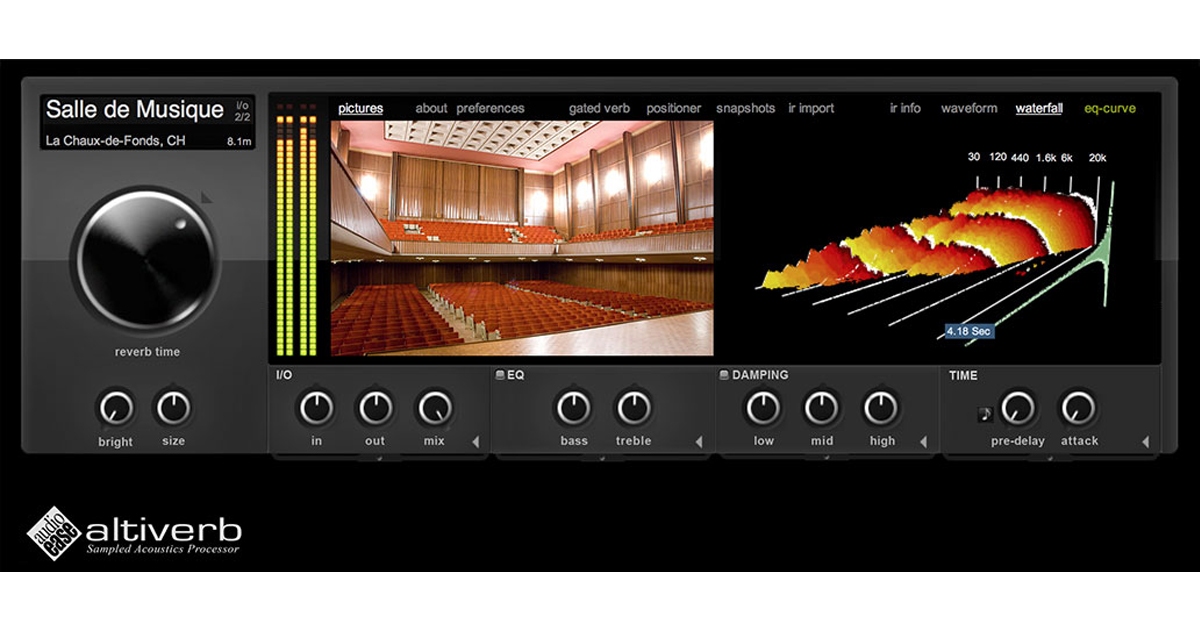
Audio Ease’s Altiverb is an expensive choice, but the love shown for this convolution reverb is as much as any other. Altiverb comes in two flavors, regular at £499 and XL at £849. This translates to somewhere around $650 and $1100 in USD depending on current exchange rates, although you can do a good bit better at a dealer like Sweetwater.
Expense aside, Altiverb is sophisticated and rich, and arguably the top convolution reverb on the market. If you don’t already know, convolution reverbs take impulse responses (IRs) from real world spaces — cathedrals, concert halls, bathrooms, anything — and use complicated computer mumbo-jumbo to allow you to place your source in that “space.”
Altiverb has a massive library of IRs from around the world, all exquisitely crafted. This includes more than just music spaces. It also includes responses from vintage gear, specific stage locations, experimental responses, and more. If you’ve never tried a convolution reverb, do yourself a favor and at least try out Altiverb’s demo.
UAD Lexicon 224 – $299
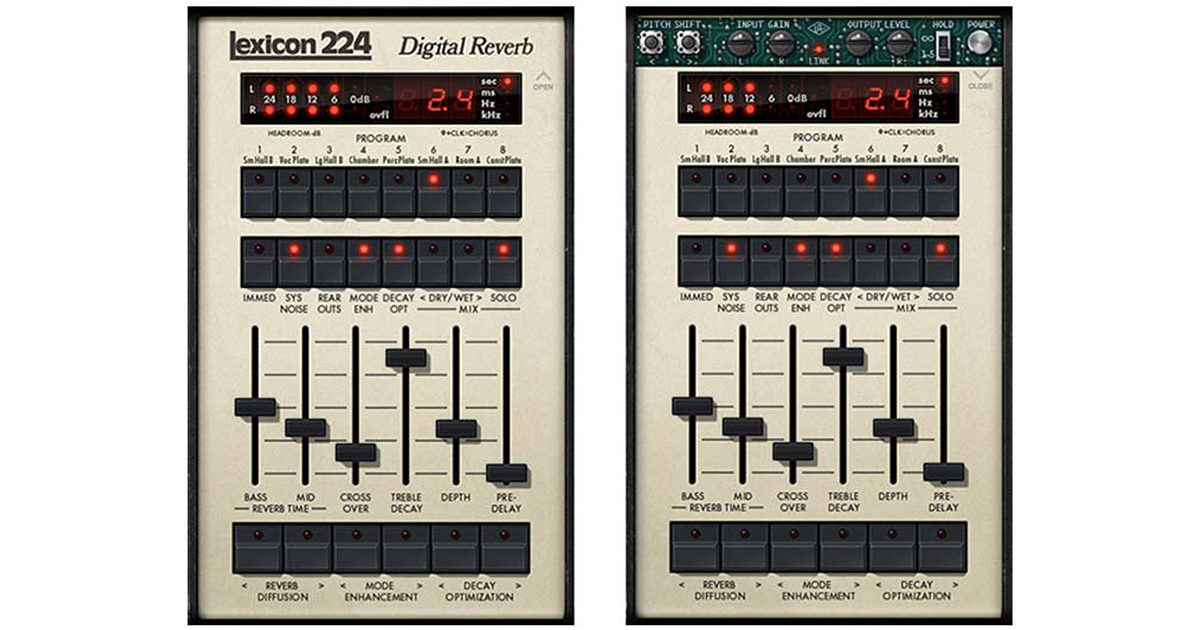
Universal Audio’s Lexicon 224 is a digital emulation of Lexicon’s famous hardware reverb, which was the most popular studio reverb from its release in 1978 well into the modern era. If you’ve heard U2, Talking Heads, Peter Gabriel, Grandmaster Flash or any number of other artists, you’ve heard the 224.
UAD’s emulation does the classic reverb justice, using the same algorithms as the original hardware and adding presets from famous producers who used the original, such as Prince’s Chuck Zwicky and Peter Gabriel’s Kevin Killen. Even Lexicon endorses UAD’s plug-in version, and for good reason.
The 224 is another great vocal reverb, but it shines in almost every situation. Its characteristic lush tails and classic ’80s sound will transport you back, but the truth is the sound of the 224 is equally at home in a more modern production. It’s a pretty simple plugin, with only five faders (just like the original remote control), so it won’t be hard to start experimenting right away.
Fabfilter Pro-R – $199
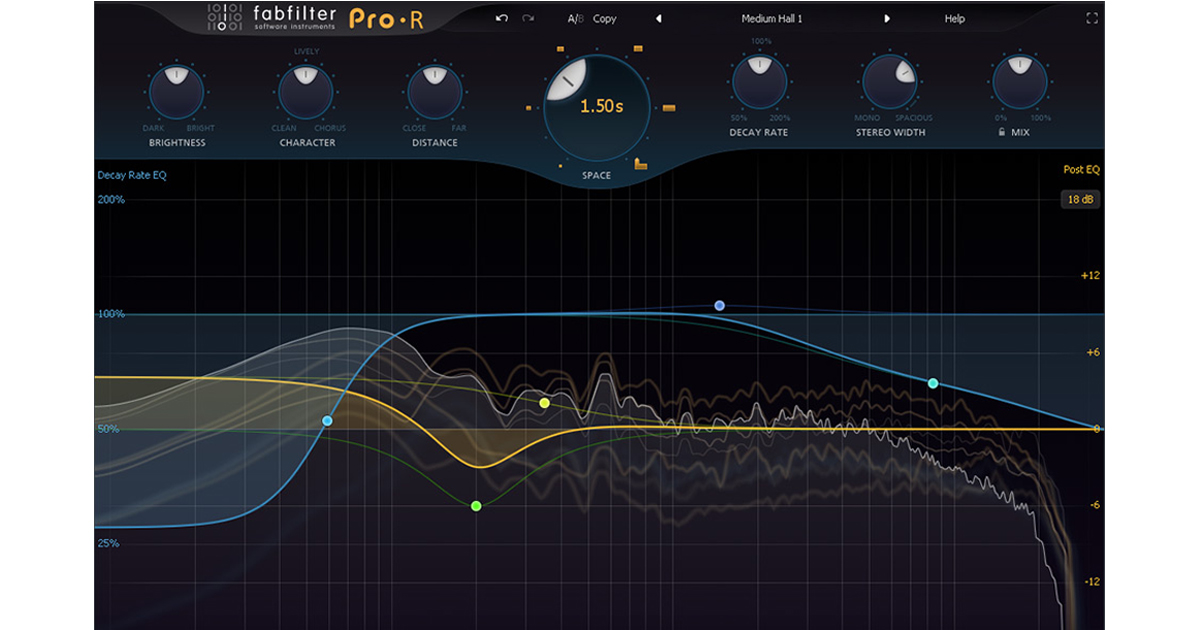
Fabfilter’s Pro-R makes the list not only for popularity and a decent price tag, but because it’s so innovative. The company claims the Pro-R plugin works in a more “musical” and less technical way, and that’s a pretty accurate statement. Some features that set Pro-R apart are a stepless room size control, tempo synched pre-delay, and probably the coolest thing ever: delay rate EQ, which allows you to control the decay time of different frequency ranges independently.
Besides offering these cool features, Fabfilter’s Pro-R has an incredibly natural and smooth sound, almost never introducing artifacts or producing ugly, nasally “reverb” sounds.
Softube TSAR – $199
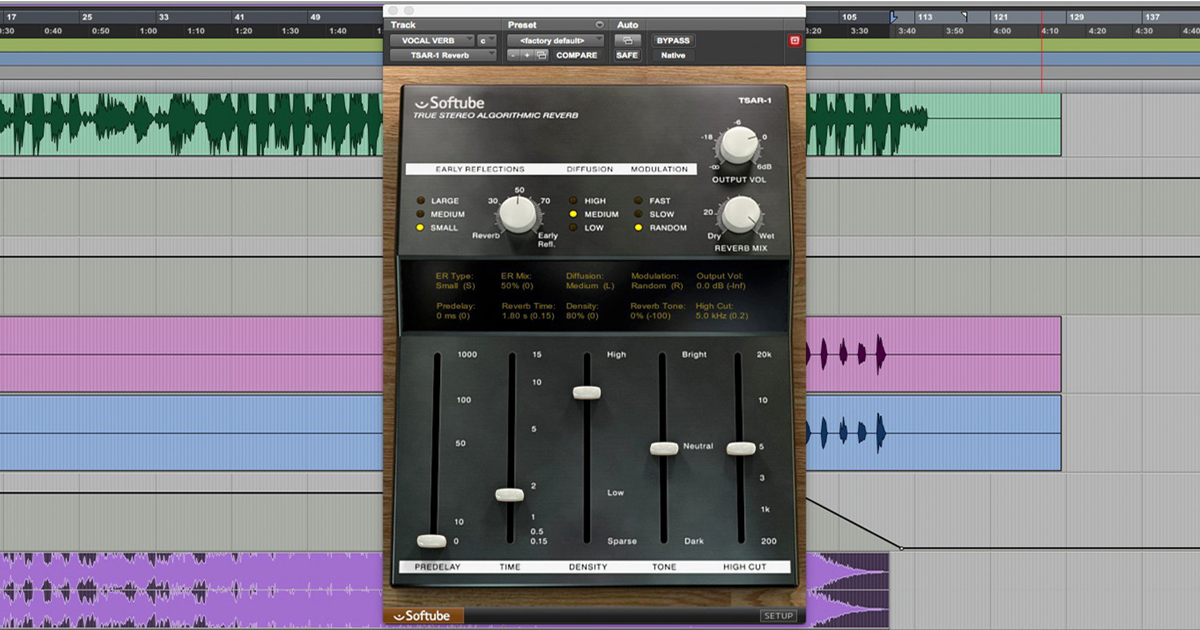
Last but certainly not least, Softube’s TSAR, or “True Stereo Algorithmic Reverb.” Softube’s sell on their reverb plugin is that it is not an emulation or a “static snapshot” of a space (a possibly unfair shot at convolution reverbs). TSAR also boasts a “true stereo” response, which simply means it responds to a stereo input in a more realistic way (i.e. if you pan an input hard right, the reverb won’t just be heard in the right speaker).
TSAR is another simple reverb. It’s got a few faders and only one algorithm. There’s no low-cut option, but you can always add an EQ to your chain to do what you need to there.
In the end, TSAR makes the cut because of its excellent sound quality, relatively low CPU usage, and of course because of its sheer popularity in our surveys. TSAR is a fair-priced, effective and high-quality solution.
There You Have It
In all honesty, we could have gone a hundred ways with this. There are a plethora of awesome reverb plugins out there. Companies like UAD, Waves, Liquid Sonics, and Eventide are just the tip of the iceberg. Even your DAW’s stock reverb plugins are likely to be awesome. That said, the five above showed up repeatedly in surveys, always get great reviews, and when we tried them, they all sounded magnificent in some unique way.
So, go out there and try some, and let us know your favorite!
Want to get all of Soundfly’s premium online courses for a low monthly cost?
Subscribe to get unlimited access to all of our course content, an invitation to join our members-only Slack community forum, exclusive perks from partner brands, and massive discounts on personalized mentor sessions for guided learning. Learn what you want, whenever you want, with total freedom.
